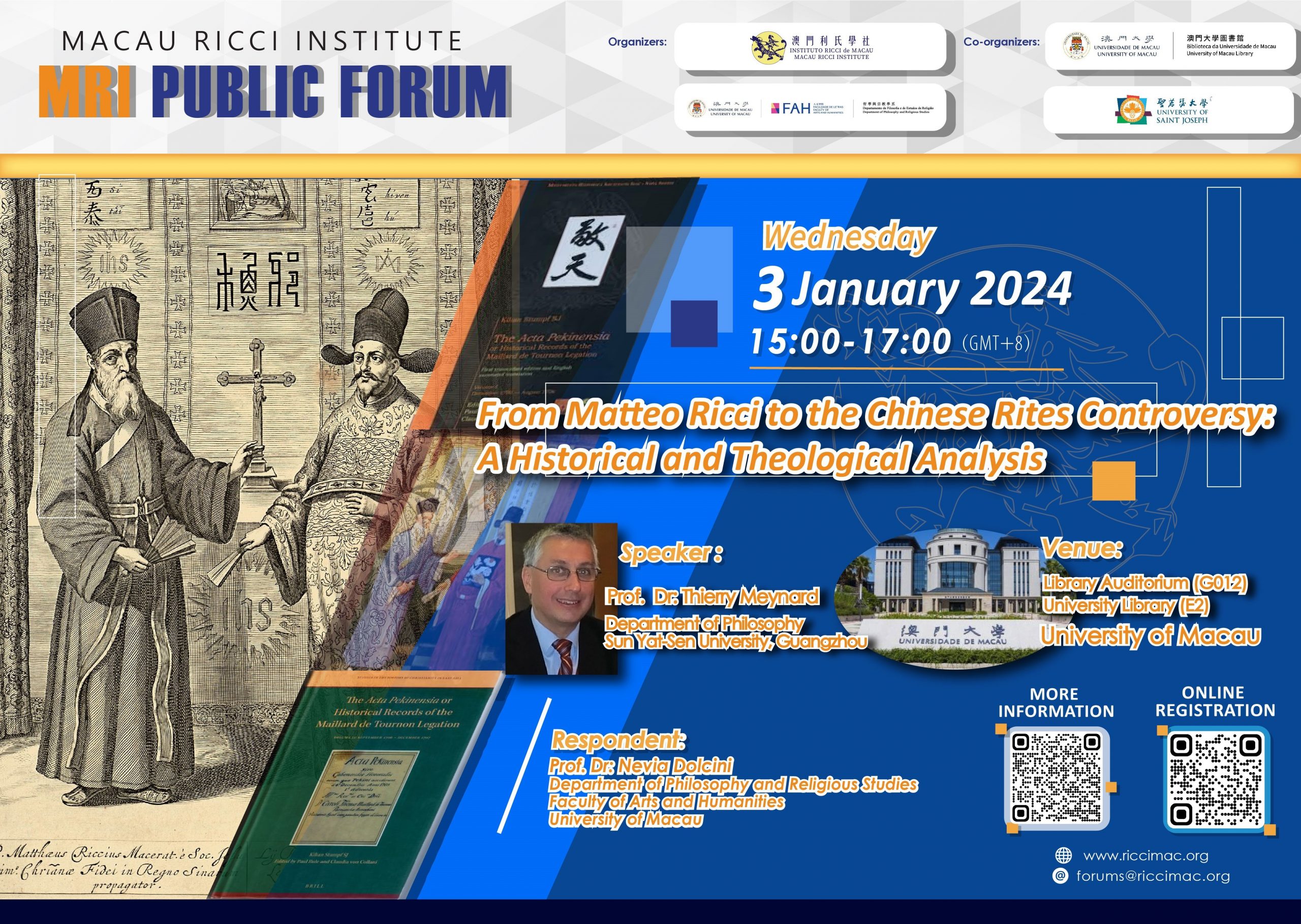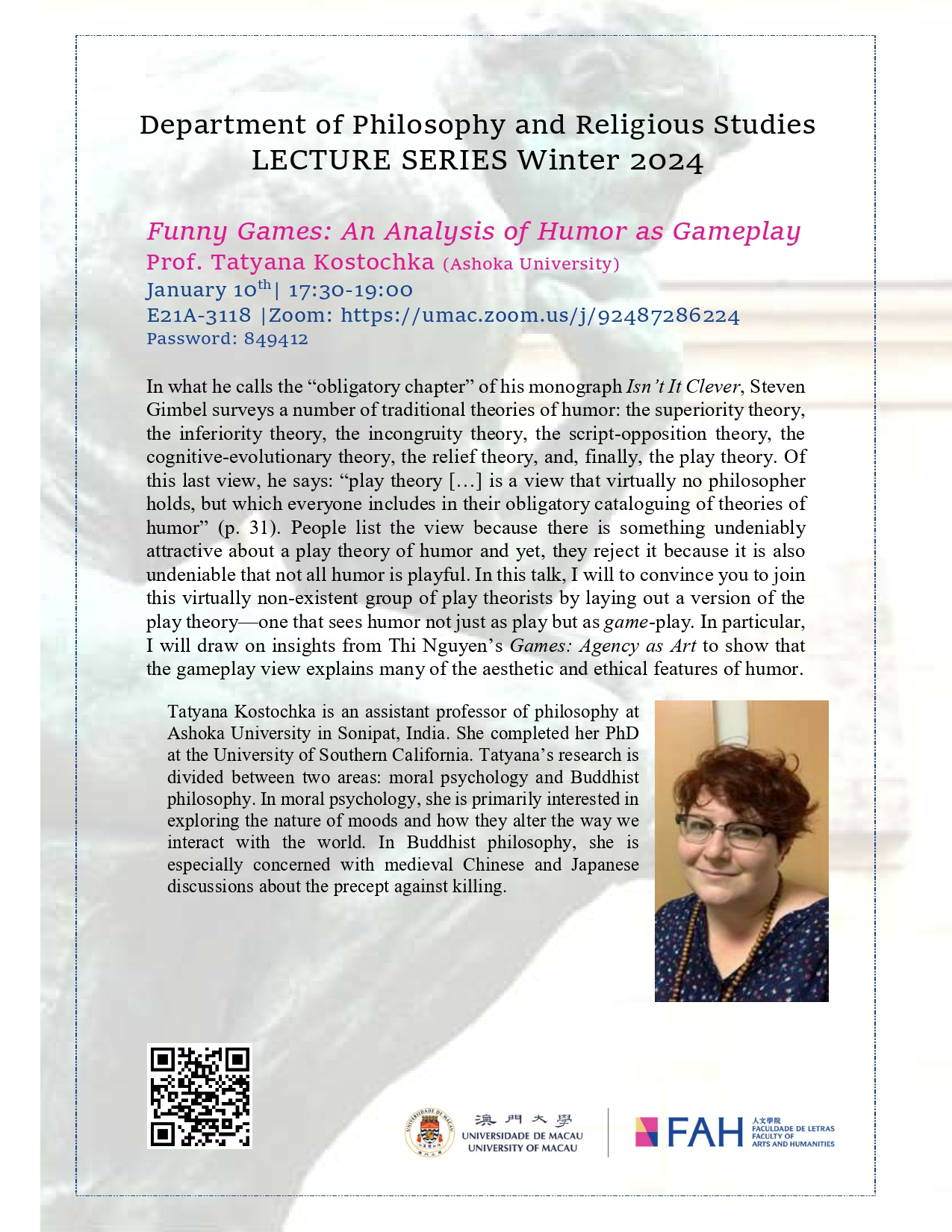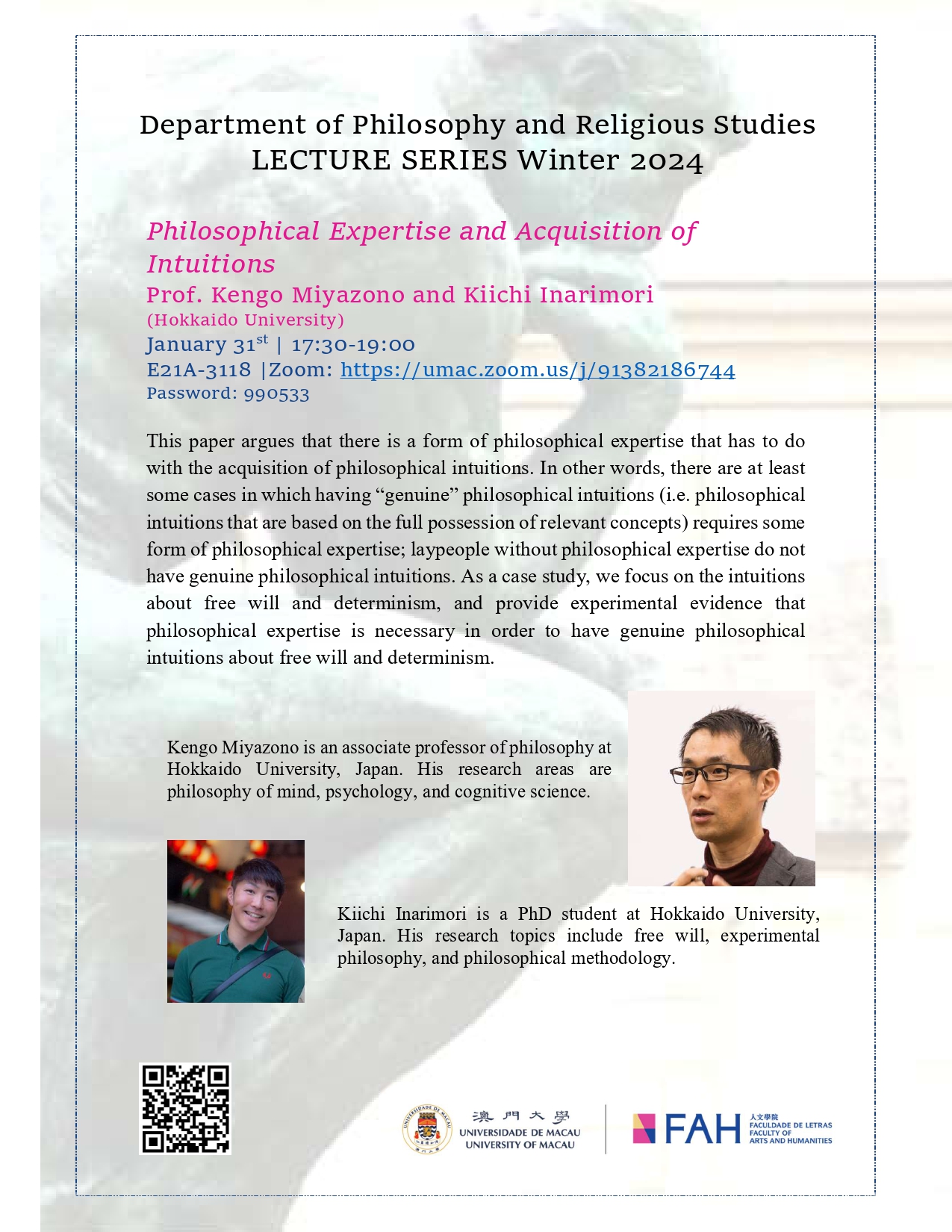Calendar of Events
M Mon
T Tue
W Wed
T Thu
F Fri
S Sat
S Sun
1 event,
FAH/DPHIL: The Mario Echano Prize for the Best Undergraduate Philosophy Essay
The Mario Echano Prize for the Best Undergraduate Philosophy Essay is awarded for excellence in philosophy. Students enrolled in the Department of Philosophy and Religious Studies undergraduate courses are eligible to enter an essay for the annual award. Students are invited to submit an academic essay written as an assignment in one of the Department of Philosophy and Religious Studies’ undergraduate courses this academic year (AY2023/2024). Essays of any length are acceptable. The organisers reserve the right not to award the prize if essays are not of sufficiently high standard. Please submit essays by e-mail with the subject line ‘Submission for the Mario Echano Prize’ to Maggie Wong at MaggieWong@um.edu.mo. Attach your essay to the message as a Microsoft Word document (other […]
2 events,
2 events,
FAH/DPHIL Lecture Series – “Funny Games: An Analysis of Humor as Gameplay” by Prof. Tatyana Kostochka, Ashoka University, India
FAH/DPHIL Lecture Series – “Funny Games: An Analysis of Humor as Gameplay” by Prof. Tatyana Kostochka, Ashoka University, India
Zoom: https://umac.zoom.us/j/92487286224 Password: 849412 Abstract In what he calls the “obligatory chapter” of his monograph Isn’t It Clever, Steven Gimbel surveys a number of traditional theories of humor: the superiority theory, the inferiority theory, the incongruity theory, the script-opposition theory, the cognitive-evolutionary theory, the relief theory, and, finally, the play theory. Of this last view, he says: “play theory is a view that virtually no philosopher holds, but which everyone includes in their obligatory cataloguing of theories of humor” (p. 31). People list the view because there is something undeniably attractive about a play theory of humor and yet, they reject it because it is also undeniable that not all humor is playful. In this talk, I will to convince […]
2 events,
FAH/DPHIL Lecture Series – “Philosophical Expertise and Acquisition of Intuitions” by Prof. Kengo Miyazono and Kiichi Inarimori, Hokkaido University, Japan
FAH/DPHIL Lecture Series – “Philosophical Expertise and Acquisition of Intuitions” by Prof. Kengo Miyazono and Kiichi Inarimori, Hokkaido University, Japan
Zoom: https://umac.zoom.us/j/91382186744 Password: 990533 Abstract This paper argues that there is a form of philosophical expertise that has to do with the acquisition of philosophical intuitions. In other words, there are at least some cases in which having “genuine” philosophical intuitions (i.e. philosophical intuitions that are based on the full possession of relevant concepts) requires some form of philosophical expertise; laypeople without philosophical expertise do not have genuine philosophical intuitions. As a case study, we focus on the intuitions about free will and determinism, and provide experimental evidence that philosophical expertise is necessary in order to have genuine philosophical intuitions about free will and determinism. Bio Kengo Miyazono is an associate professor of philosophy at Hokkaido University, Japan. […]





